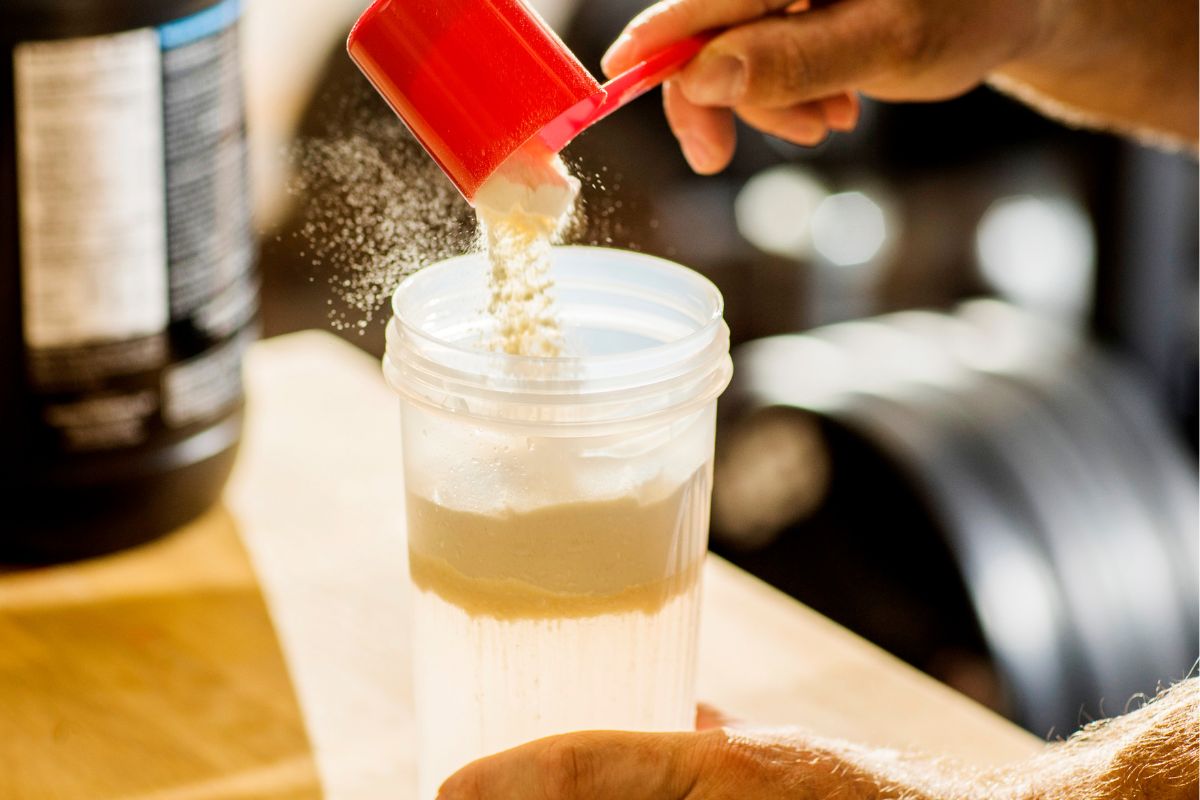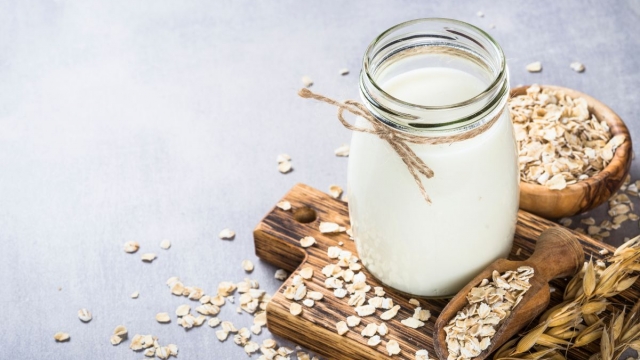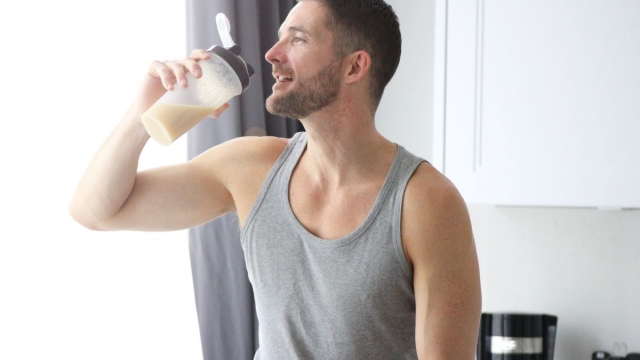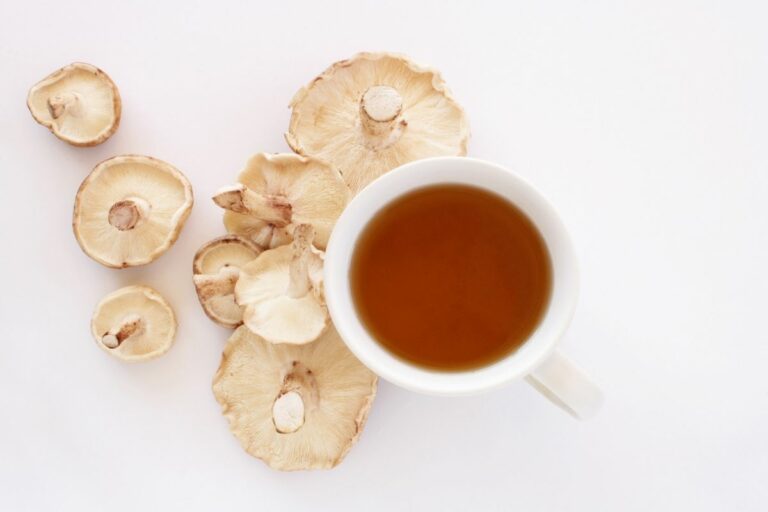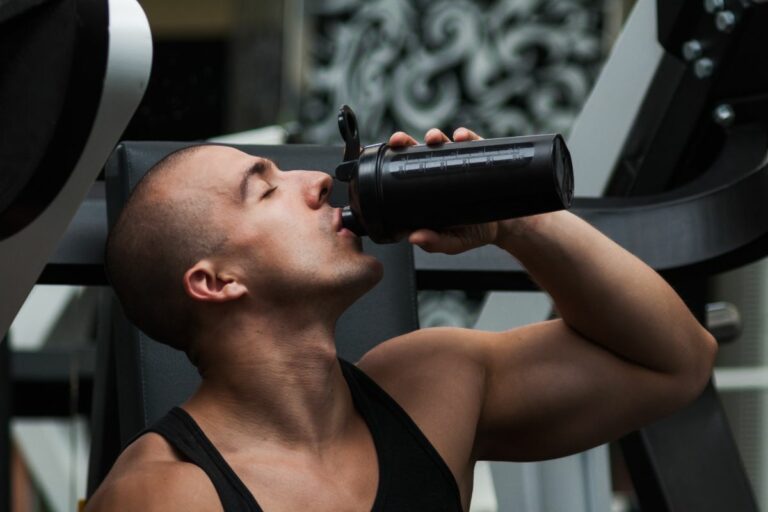Water Or Milk? – What Should You Use For Protein Shakes
One of the biggest decisions you will have to make when preparing a protein shake after or before a workout is whether to use milk or water as part of the mixture.
A lot of people will argue that there are not really any differences in what you choose, but the truth is that there are actually quite a few factors that keep the two apart and make one more suitable for some people to consume than others.
Protein shakes should be about assisting your physical growth and giving you that extra boost of energy you need when at the gym, so it makes sense to do a little bit of research beforehand to know which liquid is going to benefit you more in the long run and will allow you to reach your physical goals a lot quicker.
Here are all the major factors that cause water and milk to act differently when used in a protein shake so that you can easily choose which will be the better option for you.
Are Milk And Water Really That Different?
If you don’t care as much about the finer details of building muscle, then using either milk or water won’t be as big of a factor to you, however, if you know the type of body you want to achieve, whether it’s lean and toned, or bigger and bulky, then the choice suddenly becomes a lot more important.
Let’s take a closer look at the two, and go through how they will impact your body when you mix them with your protein powder.
Reasons To Use Milk
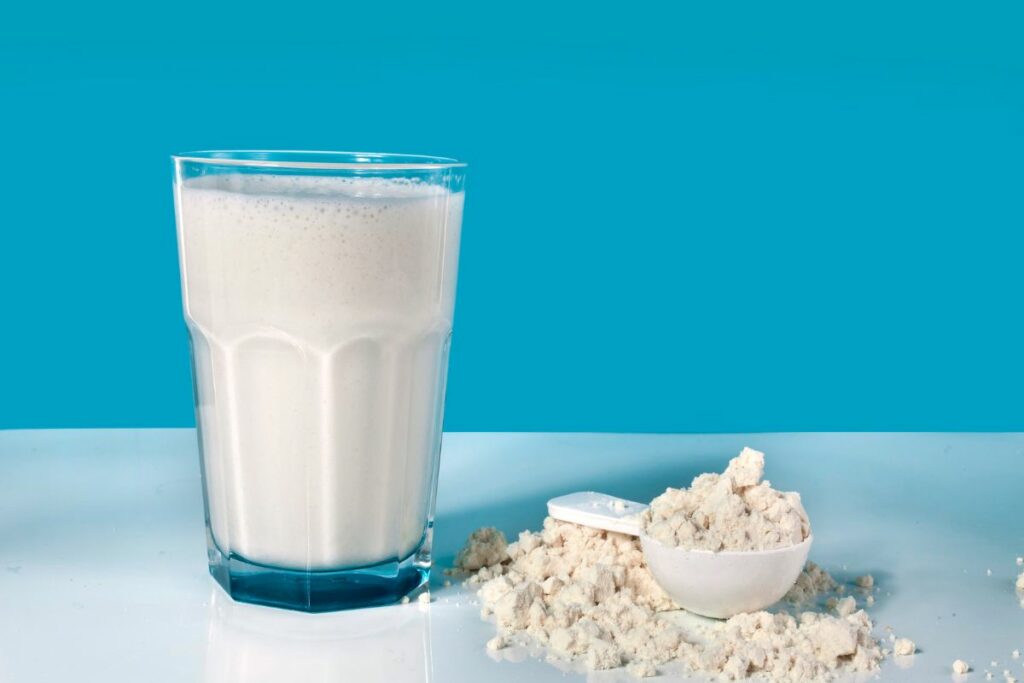
Protein Content
Did you know that each cup of milk already contains 8 grams of protein? If you imagine how much milk you would be mixing in with your protein powder, you can understand how beneficial milk would be for building mass and muscle.
Milk contains 80% casein and 20% whey, two high-quality proteins that can help to rejuvenate the body’s muscles, which is why it is so ideal for people looking to bulk up.
On top of the protein content, milk also contains carbohydrates which provide you with an extra dose of energy in the gym while also helping your muscles to recover after those longer sessions.
Flavor
While this is technically a matter of preference, if you use water as your protein mixer, you’re going to be getting no extra flavor which can sometimes be a little off-putting, especially when the powder comes out a little thick, and the flavor of the powder becomes too strong for your liking.
Milk on the other hand helps to keep the texture and taste creamy, so no matter what flavor you use, even if you’re experimenting with a new variant, you can be sure it’s never going to taste too overpowering.
Absorption
When protein is mixed with milk, it is absorbed a lot slower than water, meaning a milk-based protein shake can be enjoyed any time of the day since it will take a little while for the protein and milk to mix together.
Because of this, it does mean that water can sometimes be better if you want a post-workout drink as soon as you leave the gym, but if you’re drinking them occasionally throughout the day, milk is the better choice.
Reasons To Use Water
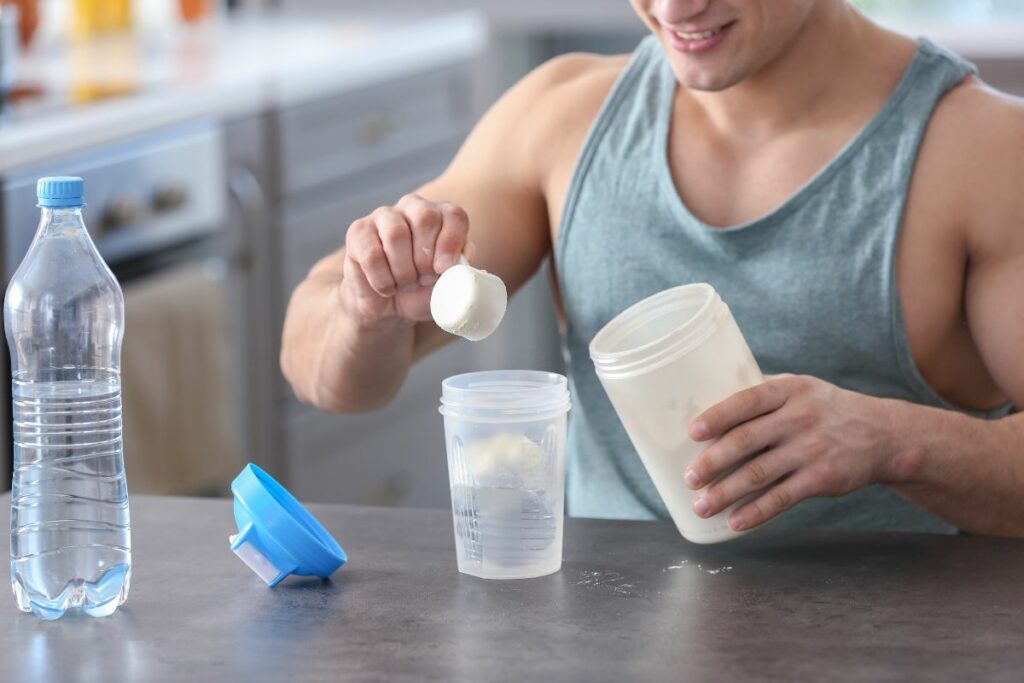
Lower In Carbs
While carbohydrates can be good for when you’re focused on muscle gain, if you’re trying to manage your weight and become a lot leaner physically, then they may be something that you have considered cutting down on, or that you are consuming in your meals and don’t want too much of in your shake.
If you’re in this position, then you will want to go with water over milk since it contains far fewer carbs and overall fats, so if you want your shake to be specifically centered around the protein and are getting all the other essential nutrients from your food or smoothies, then water is a much better choice over milk.
Rapid Digestibility
Milk takes a lot longer to actually digest when mixed with protein, so if you have problems with lactose digestion, or you intend to eat a hearty meal right after your workout and aren’t planning to wait around before doing so, then water will be the much better mixer.
Lighter Texture And Taste
Water will taste a lot lighter and leaner than milk, which not only means it can help you feel more refreshed after leaving the gym, but it can also prevent you from getting stomach aches or pains which can sometimes come as a result of consuming too much milk.
Always keep in mind however that you don’t want to be inserting too much water into your shake otherwise it can end up diluting the taste of the powder, making the whole thing taste pretty unappetizing.
Why Your Calorie Intake Matters
While these are some of the major factors that should determine whether you go with milk or water when mixing your protein shake, another very big thing to keep in mind is your calorie intake, and more specifically, how easily you manage to eat your meals, depending on how much energy you need to reach your goal.
If you’re someone who is looking to lower their calorie intake and wants to lose weight while also converting a lot of body fat into muscle, then water is going to be the much better mixer since you won’t be getting any excess calories in the drink.
On the other hand, if you’re trying to bulk up but are having a hard time eating the meals required to reach your desired calorie intake for the day, milk is a great way to get you those few extra calories that you need to start building muscle.
Can You Use Anything Else As A Protein Mixer?
While water and milk are the conventional mixers that most people will use, there are a few other options you can choose from if you want to experiment with a new flavor, or are looking to increase or lower your protein intake through different methods.
Here are some great alternatives you can try out:
- Smoothie – Perfect as a breakfast option but also a great post-workout drink, smoothies tend to be high in carbs and packed full of essential micronutrients such as Vitamin B and C, making them a great mixer to assist in muscle recovery.
- Orange Juice – Orange juice is packed full of carbs, containing approximately 25 grams per cup, making it great for bulking. Just make sure that you pick up a bottle that doesn’t include any extra sugar.
- Greek Yogurt – The main reason you would want to use Greek yogurt is if you want to pack as much protein into a single shake as possible so that you don’t have to drink another one soon after. Just make sure you add a little less yogurt than you normally would with water or milk since the abundance of protein can lead to stomach problems if you go too overboard.
Explore Also:
Creativehouseblog
Dietsheriff
Gigasecurehome
Summary
While there are several factors that separate water and milk, including their taste, texture, and digestibility, the main thing to keep in mind is how many carbohydrates they each contain.
If you want to leave out the carbs and are looking to build lean muscle mass, then water is the best option, but if you are more focused on growing bigger and bulkier physically, milk will be more suitable for you to use as a mixer.
Other Articles To Read
8 Best Zero Carb Protein Shakes To You Keep Fit – Protein shakes very often contain a high amount of carbs to make up for the lack of flavor that such shakes normally have. But are there any low-carb variations
Are Premier Protein Shakes Safe For You During Pregnancy – In this article below, we’re going to be taking a look at premier protein shakes, and ascertaining whether or not they are safe to ingest during pregnancy.
Isagenix Vs Shakeology What You Need To Know – Are you wondering whether you should go for an Isagenix shake or a Shakeology shake? Read on for more information on these two shakes and which one is best!

